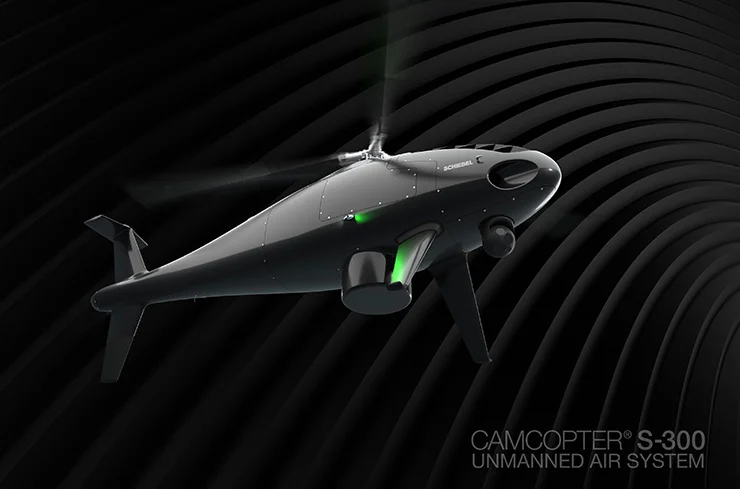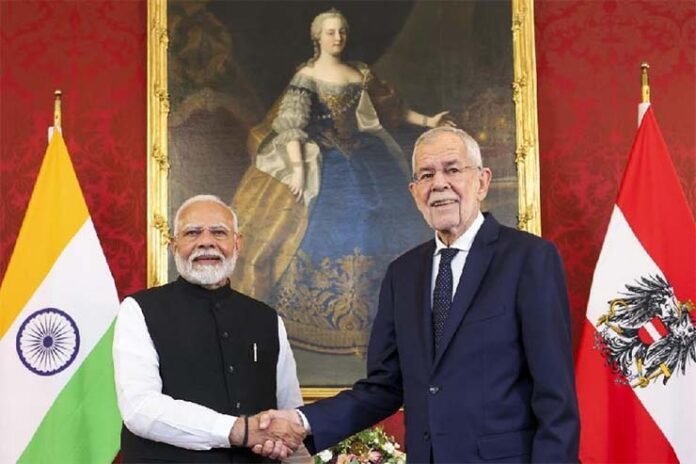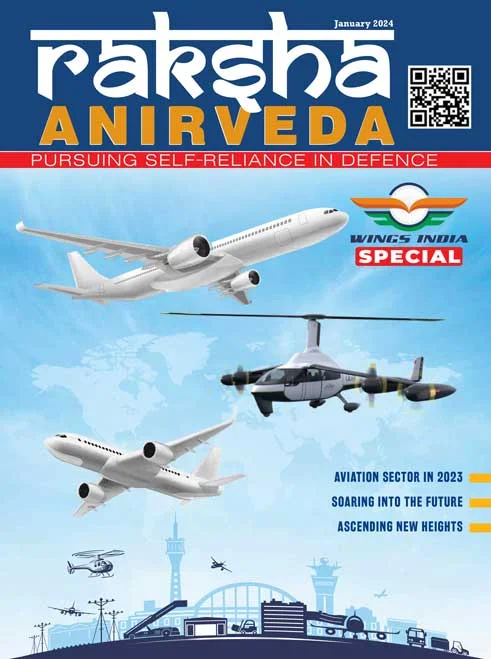New Delhi. Prime Minister Narendra Modi’s visit to Moscow on July 8-9, at the invitation of President Vladimir Putin, will be his first visit since Russia’s military actions in Ukraine. Russia views this visit as an opportunity to showcase its on-going diplomatic engagements despite Western attempts at isolating it.
From Indian point of view a visit to both countries, with the new Modi 3.0 government not even a month old, underlines the fact that India will continue strengthening relations with its traditional allies like Russia, but it will also further promote relations with other European counties like Austria.
Prime Minister Modi’s one-day visit to Austria will be the first visit by an Indian prime minister to the European country in 41 years. Thus, the visit signifies India’s intent to strengthen its relations with European nations, too.
The bilateral ties between the two countries are not new. In the 18th and 19th century Austrian scientists played an important role in India. Jesuit Father Josef Tieffenthaler for example became known as the “Father of Modern Indian Geography”
Prime Minister Modi will meet with President Alexander Van der Bellen and hold discussions with Chancellor Karl Nehammer. The agenda includes talks on bilateral cooperation and addressing business leaders from both countries. This visit aims to bolster economic ties and explore new opportunities for collaboration in various sectors.
The bilateral ties between the two countries are not new. In the 18th and 19th century Austrian scientists played an important role in India. Jesuit Father Josef Tieffenthaler for example became known as the “Father of Modern Indian Geography”. Not only was he a cartographer (the first exact cartographic recording of the middle Ganges river including its confluents is owed to him) but also an internationally renowned Sanskrit scholar and taught at the Jesuit College in Agra (1740-1770).

On the other hand, Indo-Austrian trade stood at $ 2.84 billion in 2022. In 2024, Austria’s defence budget is worth $4.3 billion, with expertise in military rotorcraft, ammunition, military land vehicles, military fixed-wing aircraft, electronic warfare, and missiles and missile defence systems, among others. In 2024, missiles and missile defence systems accounted for the highest share of the Austrian defence market.
The furnishing of additional air defence systems in the wake of drone proliferation and frequent use of air and missile attacks in conflicts around the world today makes this the most valuable sector for Austria’s defence market.
An Austrian drone manufacturer Schiebel India is paving the way for advanced defence solutions with their flagship S-100 Unmanned Aerial System and upcoming innovations like the S-300
In this backdrop, an Austrian drone manufacturer Schiebel India is paving the way for advanced defence solutions with their flagship S-100 Unmanned Aerial System and upcoming innovations like the S-300.
In an exclusive interview with Raksha Anirveda, Schiebel India’s CEO Jajati Mohanty said that Schiebel is currently working with the Indian Navy to adapt its S-100 Unmanned Aerial System (UAS) in a tactical role in the Indian Ocean Region (IOR) and anticipates an increase in numbers as the Navy experiences the capability of Schiebel’s mature solution and steadily creates new concepts of operations based on this quantum jump in technology for use at high seas.
Austrian technology enjoys an excellent reputation in India. Since 1991, over 150 Austrian subsidiaries and/or Austro-Indian joint ventures were established in India. Besides, more than 500 Austrian companies are involved in bilateral trade relations with India.
In this regard, the role-played by the India-Austria Startup Bridge, a collaborative initiative between Startup India-DPIIT and Advantage Austria India and the Austrian Embassy has taken a significant step forward in fostering connections between the dynamic startup ecosystems of India and Austria.
The India-Austria Startup Bridge aims to promote connections between startups in both countries with investors, partners, and mentors, knowledge sharing by promoting the exchange of knowledge and best practices between the two countries
The Bridge launched during Austrian Federal Minister Martin Kocher’s visit to India in February 2024, aims to facilitate collaboration and knowledge sharing between startups in both countries.

The Bridge aims to connect by facilitating connections between startups in both countries with investors, partners, and mentors, knowledge sharing by promoting the exchange of knowledge and best practices between the two countries, ensuring market access by helping startups from both nations gain access to new markets, and encourage establishing joint ventures by encouraging co-creation and joint ventures between Indian and Austrian startups.
Austria is militarily neutral but shares security concerns with the EU and hosts several international organisations. It is a member of the EU and has contributed troops to EU missions including military operations in Kosovo, Georgia, Palestine, and Libya. Austria is opposed to the idea of a European army, with many domestic actors seeing it as a violation of Austrian neutrality. However, despite some opposition to elements of European security, many domestic actors see participation in EU programs as a way to bring down procurement costs for defence programs.
Probably, based on these inputs and with a vision to expand the Indo-Austrian trade, Prime Minister Modi decided to visit this small European nation. But in this regard it would be more fruitful if the main focus is shifted to defence, as many Austrian defence manufacturers are ready to offer cutting edge technology to India in this sphere.









